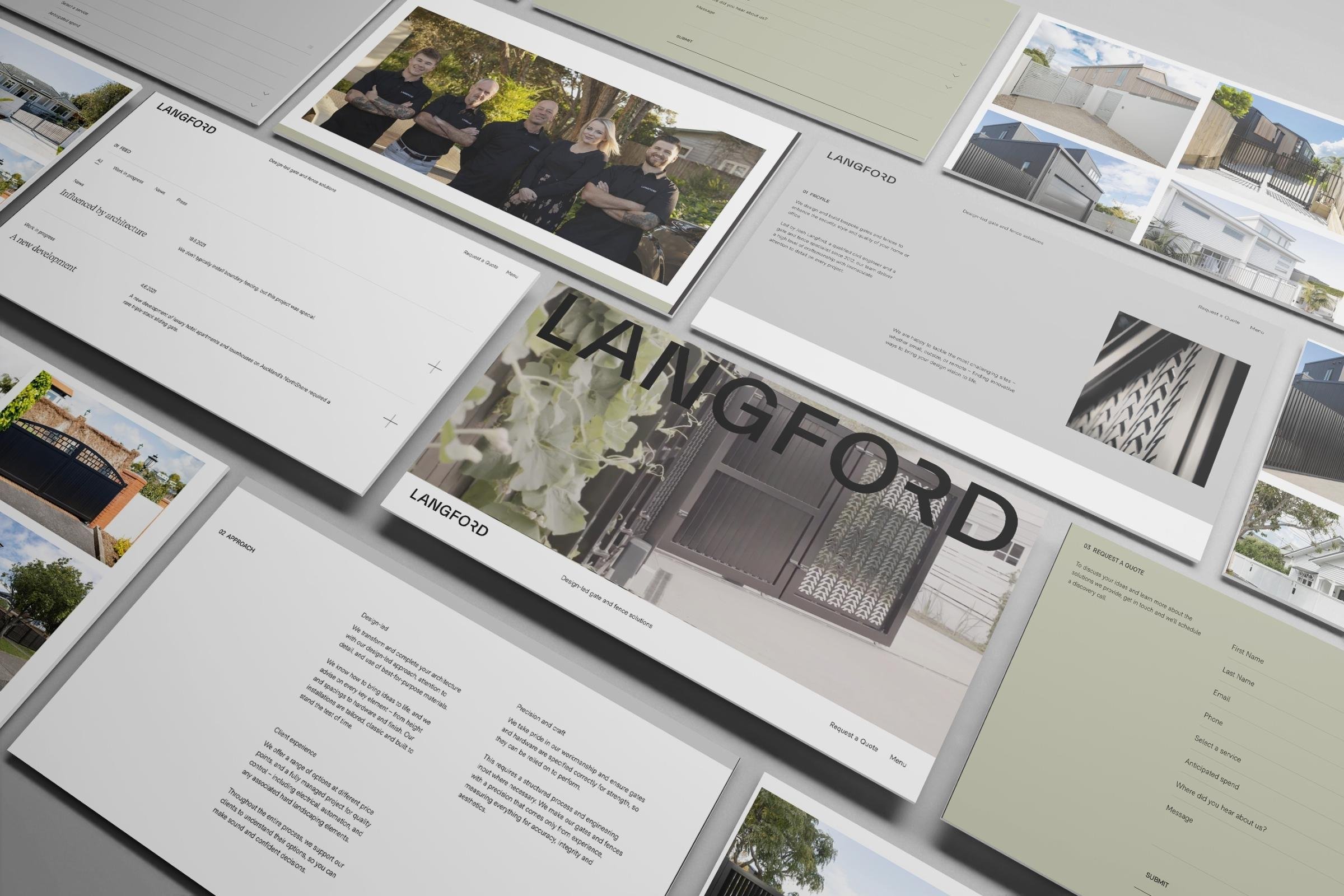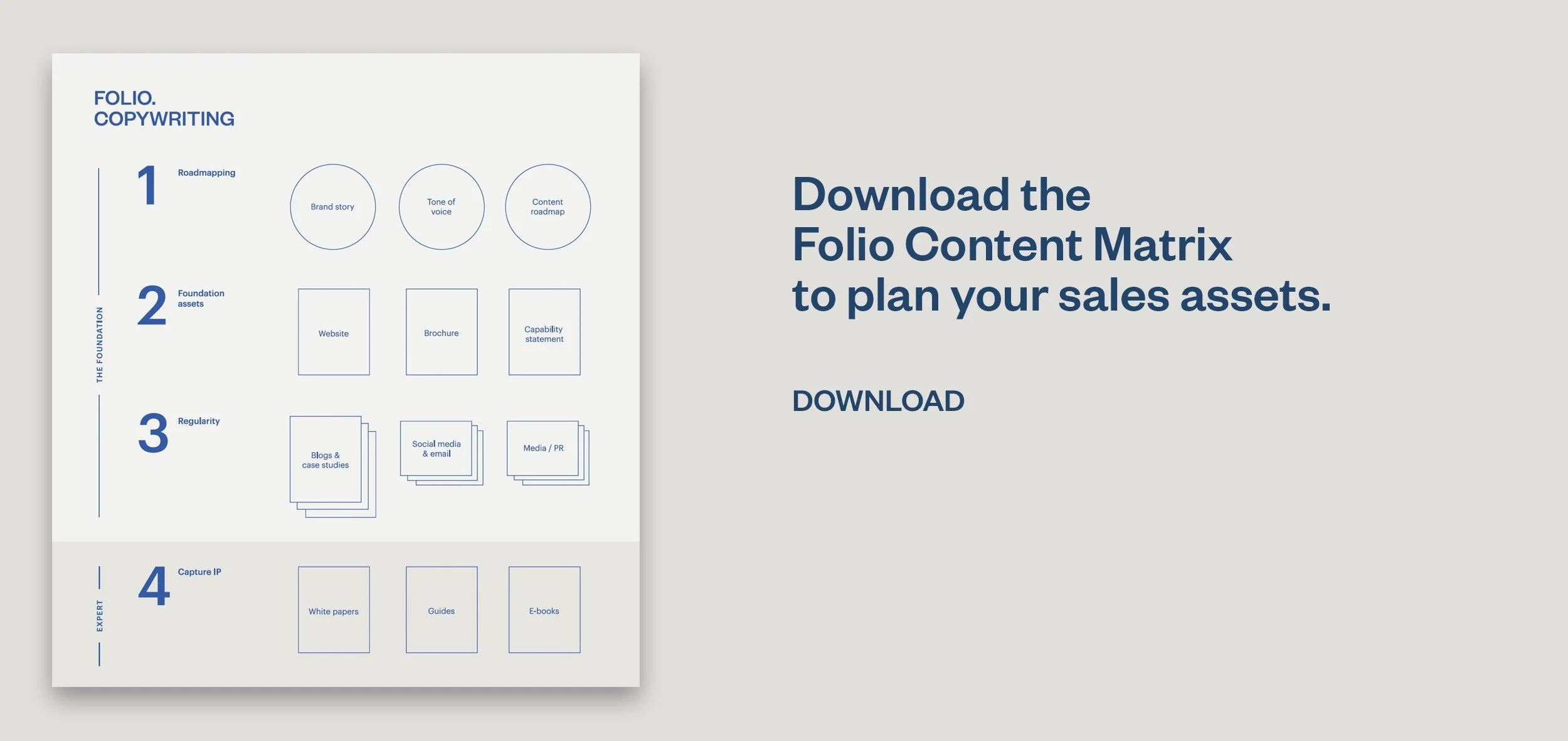Authority businesses, part one
Building authority in your industry is based on trust and value. With today’s channels, businesses can scale their expertise and position themselves as leaders. This series explores how strategic branding and communication can help you stand out.
Twenty years ago, when I was a registered architect, our team collaborated with a technical representative from a local roofing products company. He was an expert in his field. If we had a question about detailing or specifications, he was always just a call or email away—and happy to visit the site or office if needed.
He’d assess the situation, explain the options and limitations of the products in achieving our detailing goals. He was thoughtful, insightful and helpful. Did he ‘sell’? Yes, but it never felt like it.
By being the go-to expert in his field, creating value and supporting us in achieving our goals, we specified his product more than its competitors. Not only that, he helped his company build a trusted brand in the market. His style was a time-tested way to support his customers.
What’s changed today is the range of channels available for sharing insights and expertise. Owned, earned and paid channels enable organisations to scale their communications, delivering expert advice across multiple platforms. With a library of well-crafted content—text, images, illustrations and video—businesses can easily distribute the information people need.
We help you grow your authority and visibility by enhancing and amplifying what you say, how you say it, and where you say it. Through posting, publishing and pitching, we ensure you’re communicating the right topics at the right time on the right channels.
Strategic branding is your foundation
When positioning yourself as the expert authority in your niche, ‘branding’ as a strategic business activity creates tangible and intangible assets for your business. With a well-crafted brand, your offer will be more compelling, your business will be more memorable, and you’ll win more of the work you want.
In B2B marketing and communications, the term ‘brand’ can sometimes have negative connotations. It’s often misunderstood as a logo and tagline—an object rather than an idea. It’s seen as ‘aesthetics’—colours, shapes, and fonts applied to walls, business cards, websites and more.
Does all this effort and expense on branding make an impact? It certainly does, but only when shaped by a solid business strategy and supported by a well-crafted brand story and voice.
You build a more powerful proposition by digging into your culture and value creation, crafting a smarter business offer for your ideal customers, and differentiating yourself in the market. You’ll attract higher fees or pricing and share your story in a way that steers your business toward a more ideal position in the market.
Create a brand from a strategic framework
Marketing communications and sales activities exist within a strategic planning context. The only reason to run these processes and programmes is to drive a team and a business towards a set of defined strategic goals. These can be developed by clarifying:
• what you deliver,
• where you want to go,
• how you deliver,
• why you exist,
• the customer value you create,
• who you will do this for,
• and your specialisations or niche.
When you are clear on your offer (value creation, unique IP and expertise), objectives (goals, strengths and opportunities), culture (beliefs, values and philosophy), purpose (mission and vision), and positioning (sectors, niche, specialisations), then you can begin to craft a solid sales and marketing plan.
Unless you’ve developed some unique IP, you’re likely competing against businesses that sell something reasonably similar to what you do—for example, architectural services, IT consulting, engineering design or office furniture.
If you’re ambitious, you’ll want to stand out and differentiate yourself to increase market share. You’ll have some unique attributes—in areas such as skills, scope of services, location, niche and expertise. And aside from relying on raw charisma or massive effort, standing out in your field will come down to how well you tell your story.
Words and images have power
Presidents and prime ministers are elected based on their ideas rather than resumes. Before a potential customer gets to know you personally, you must convince them of your suitability via the communications you put into the world.
This is why branding and marketing communications play such a vital role.
You can’t simply rely on previous work to win the next job. You need to communicate what you do to the right audience to drive your business in the desired direction.
Authority starts with clear value drivers and a strong brand. By crafting a compelling story and communicating effectively, your business can attract high-value clients and achieve lasting success.




